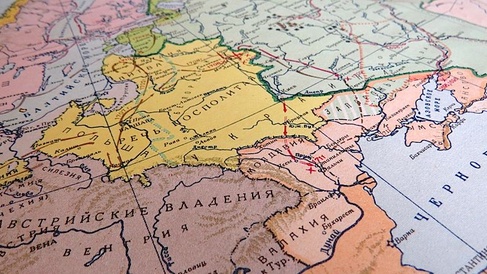History and Modern Languages (HML)

Course Overview
The History and Modern Languages course at Cambridge is a joint degree that gives you the opportunity to combine the study of languages, culture and history.
In each year of your degree, you will follow courses (‘papers’) of three kinds:
- language papers that focus on employing and extending your active language skills.
- your choice of ‘scheduled papers’ that focus on the culture, history, literature, philosophy, art and film culture of the languages you are learning and/or on linguistics. These papers are generally organised by period, theme, or medium.
- history papers on a selection of topics ranging from ancient and medieval societies to the twentieth-century world.
When you graduate, you’ll have near native-speaker skills in your language and a deep knowledge and understanding of the regions in which that language is used. You’ll also have a deep immersion in the discipline and craft of history and a deep understanding of the many forces that have shaped the past and present.
Course structure
The course lasts four years and is split into three Parts: Part IA in the first year, Part IB in the second year, and Part II in years three and four.
The First Year
During the first year you will enhance your written and spoken language skills and study a related course (normally an introduction to the literature, thought and history of the relevant country). These courses are designed to introduce you to the study of literature, culture, history of your chosen languages and to expose you to a range of subjects and materials, including an introduction to linguistics. You will also choose one ‘Outline’ course from History Part IA, which will introduce you to broad themes within a substantial historical period. You will also study the ‘Historical Thinking IA’ course, which investigates how historians work.
The Second Year
In your second year you continue your advanced language study and take three further courses. The latter comprise a further course related to your language, and a History ‘Topic’ course, plus either an additional MMLL paper or the History IB ‘Research Project’. The latter familiarises you with the research methods of a well-defined historical field, and allows you to carry out a small piece of independent research. In the second year you also have the opportunity to add a second language, if you wish. You can, subject to availability, choose to take an introductory course in a language and culture you haven’t studied before, such as Catalan, Modern Greek, Polish, Portuguese and Ukrainian. Note that we cannot guarantee that places on these courses will be available to all students.
The Year Abroad
Students spend their third year abroad studying and/or working in countries where the language they studied during their first 2 years are spoken. In the past, students have worked at a lifestyle TV channel in Paris; studied history at the Humboldt University in Berlin; taught English as a British Council assistant in Buenos Aries; and completed an internship with Radio Vaticana. The Year Abroad gives you an opportunity to immerse yourself in the language, culture and politics of your chosen language area. During this year, you will also prepare a Year Abroad Project which will cover the culture, thought, history or politics of the country in which you are spending your time.
Find out more about the Year Abroad.
The Fourth Year
At the start of your final year you take an Advanced Oral examination. You will study advanced language courses in your chosen language and three other advanced courses from a wide range offered by both Faculties. You have the option of submitting a dissertation, drawing on your linguistic and historical skills, in place of one of these papers. By the fourth year, every student’s course of study is unique. You will have the opportunity to follow and develop your own interests, in your chosen courses as well as if you elect to write an optional dissertation.
